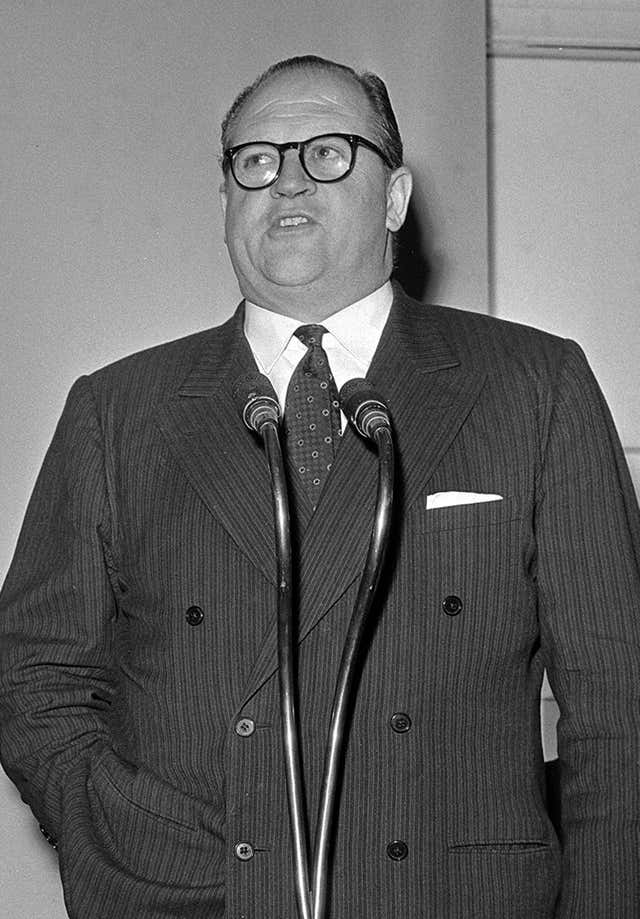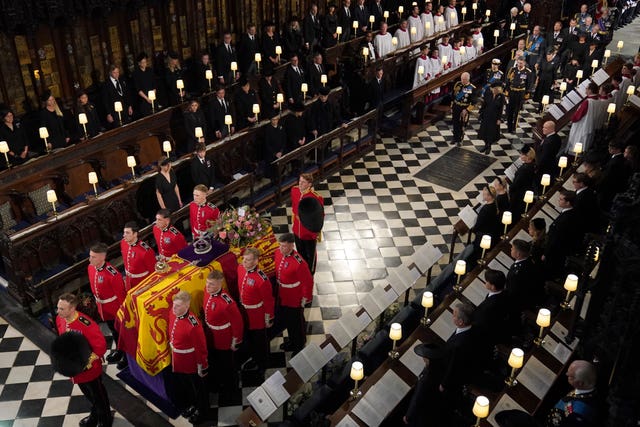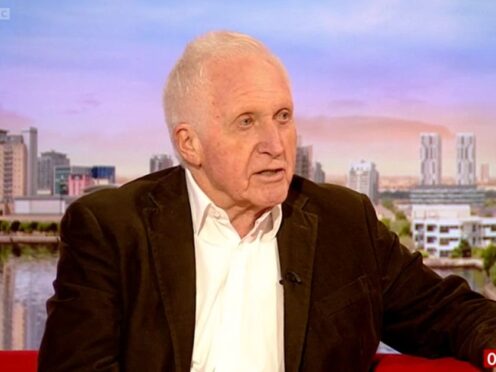David Dimbleby has revealed he would like to make a programme about the future of the royal family as he feels the question of what the public wants from a modern-day monarch is “really fascinating”.
The veteran broadcaster, 83, has commentated on a number of royal events throughout his career and fronted the BBC’s coverage of the Queen’s committal service at Windsor Castle last week.
Despite his many decades presenting on screen, Dimbleby admitted he still gets “tense and very focused” before broadcasting as he feels a “heavy responsibility” to his audience.
'I'd like to make a programme about the future of monarchy'Broadcaster David Dimbleby told #BBCBreakfast he wants to make a programme about the future of the royal familyhttps://t.co/i4IYyxW63a pic.twitter.com/agP2qwJiEP
— BBC Breakfast (@BBCBreakfast) September 28, 2022
Speaking on BBC Breakfast on Wednesday, he said: “Nervous is not quite the right way of putting it, I get tense and very focused.
“And for a big broadcast like last week’s, we were down at Windsor for four days, we watched an extraordinary rehearsal on the Saturday morning of that entire procession going up to Windsor Castle in the dark.
“Can you believe it? Five in the morning with the drums playing and the pipes playing and the horses charging around. And it was a kind of strange, eerie scene. Beautiful.
“But all that weekend, I just can’t think of anything else except – I mean, what am I? – I’m just a broadcaster for the final part of the funeral and you’re there to try and help the viewer understand what’s going on, that’s all, but because it’s so important, you feel, to everybody, you feel a very heavy responsibility.
“Question Time, I used to get nervous every single one I did because I knew it had to work, and if you’re taking it easy and relaxing it won’t work, that’s my view. And so I’ve never been frightened of feeling a bit nervous.”
The former Question Time host followed in the footsteps of his father as he provided the commentary for the service at St George’s Chapel.

Richard Dimbleby was one of the BBC’s main news commentators during the 1950s and 1960s and led major events including the Queen’s coronation in 1953, as well as the funerals of George VI, Winston Churchill and US president John F Kennedy.
David Dimbleby said that getting the timing right is what makes him nervous when commentating as he believes it should be “very restrained” and he should not talk throughout the event.
He added: “But it’s very difficult to judge because you’re trying to gauge what the viewer is making of the pictures and just nudge them a little bit with, ‘This is the crown, this is the orb, this is the sceptre being taken off’.
“You need to know everything. So you have 20 times as much information because anything can happen. Things always change. They don’t go wrong, but they’re just different, the timings are different from what you’d expect so you (need to) be ready.
“But you have absolutely to let the pictures do the work and just support them and that is quite difficult.”
The broadcaster admitted he did not know what he was going to say in the final moments of the committal service until halfway through watching it.

He said the words came to him while observing the event, and he emphasised how the Queen’s coffin had finally passed from the public domain back to the private as she was laid to rest.
Reflecting on the King taking over his late mother’s role, he said: “I’d like to make a programme about the future of monarchy because I think that’s really interesting because the change from the 70 years of Elizabeth’s reign to Charles is rare.
“There are a lot of pressures on him to do it differently, to find other ways of doing it, and I think the whole issue of how monarchy works and what its role is is really fascinating.”
He added that it is “very difficult to tell” how different King Charles’s reign will be but exploring how the public would like it to be would be “really interesting”.
